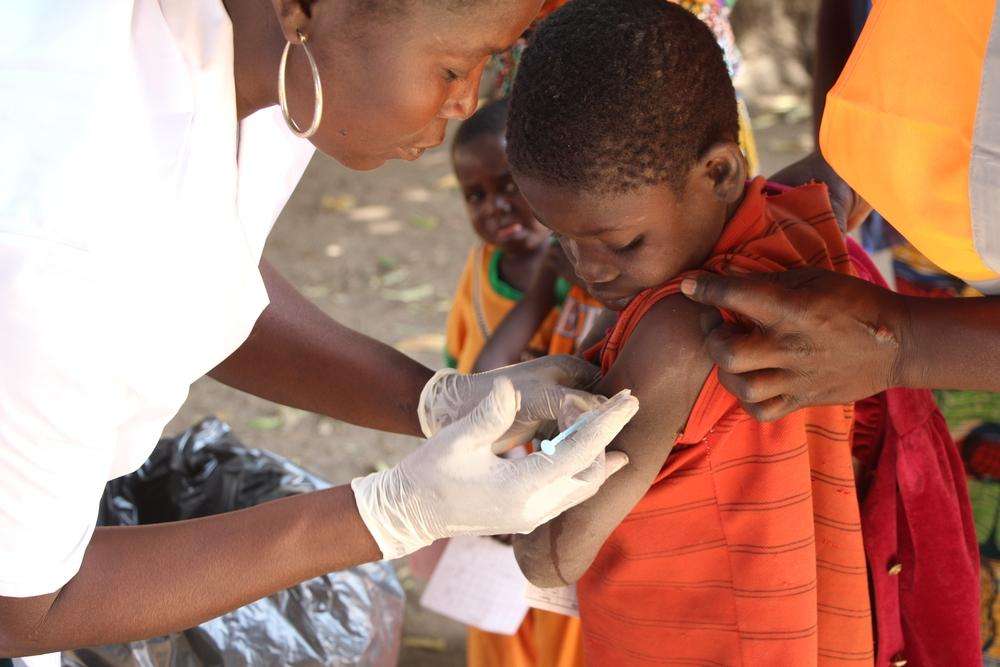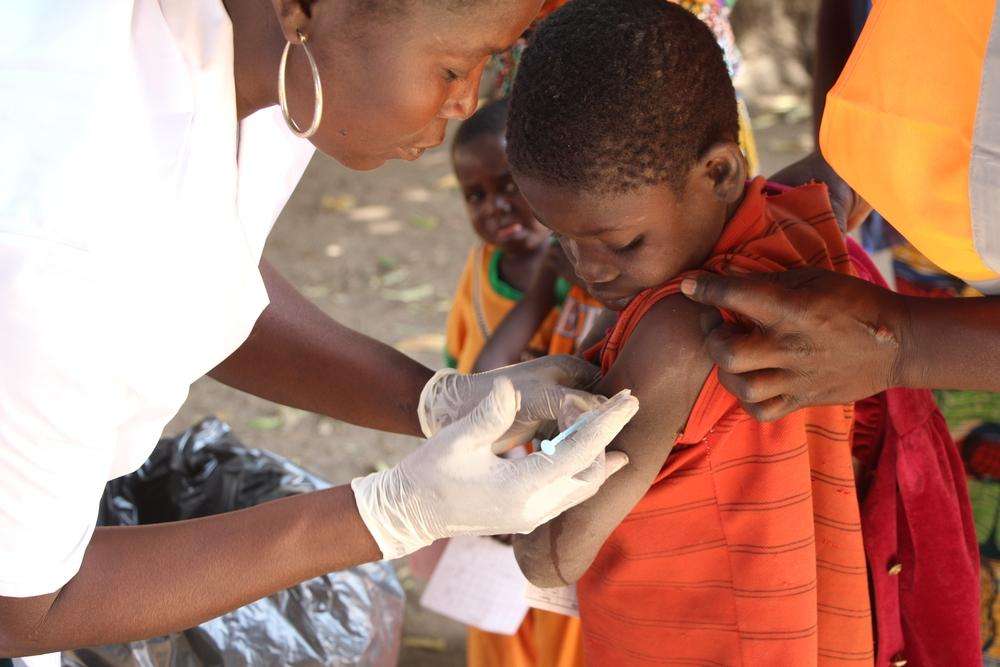PARIS/NEW YORK—Approximately 10,000 refugee children in a camp in northern Uganda will begin receiving vaccinations against pneumococcal disease, one of the leading causes of death for children living in refugee camps, said the international medical humanitarian organization Doctors Without Borders/Mèdecins Sans Frontières (MSF) today.
Children in refugee camps are particularly vulnerable to vaccine-preventable diseases, and the World Health Organization (WHO) now recommends vaccinating in humanitarian emergencies. Due to the high cost of the vaccines and logistical and regulatory barriers, however, these children are some of the least likely to receive these life-saving vaccines, MSF said.
“There is a huge gap between the WHO recommendations and the possibility of implementing them in emergency settings,”says Leon Salumu, medical advisor for Uganda. "This relevant policy to protect vulnerable populations is unfortunately not accompanied by the resources and technical support necessary for its implementation in emergency situations.”
MSF’s current vaccination campaign is taking place in the Adjumani district of northern Uganda, intended to reach South Sudanese refugee children under the age of two. They will receive a vaccine providing protection against pneumococcal disease, as well as a vaccine that protects against Haemophilus influenza type b (Hib), and other diseases. Pneumococal disease and Hib are two of the main causes of respiratory infections in children. In the Adjumani district, where more than 70,000 South Sudanese refugees are currently living, and where MSF teams are providing medical care, respiratory infections are the second most common cause of medical consultations, hospitalization and death for children under the age of five.
The high cost of PCV is one of the primary reasons vaccination campaigns for this vaccine cannot be more widely implemented in emergency settings where they are needed most. The GAVI Alliance, a Swiss-based organization which purchases vaccines for developing countries, has negotiated a price of $3.50 per dose, but MSF and other humanitarian organizations are excluded from this deal and forced to pay significantly more. For this current vaccination campaign, MSF is paying $7.50 per dose. Children need multiple doses to be fully protected.
“We don’t want to have to choose, and reduce the number of children we can vaccinate, based on pricing constraints,”said Salumu. “In emergency contexts, the time-frame for vaccinations, the choice of the vaccines to be provided, as well as the age groups of children to be vaccinated, should be based on medical and epidemiological factors, not on cost considerations.”
This is the second PCV campaign conducted by MSF. The first was in South Sudan’s Yida refugee camp last year.
Despite the challenges, MSF is currently running a vaccination campaign to protect almost 188,000 South Sudanese refugees in Ethiopia’s Gambella region against cholera, and is also planning a PCV and HiB vaccination campaign there in the coming months.





